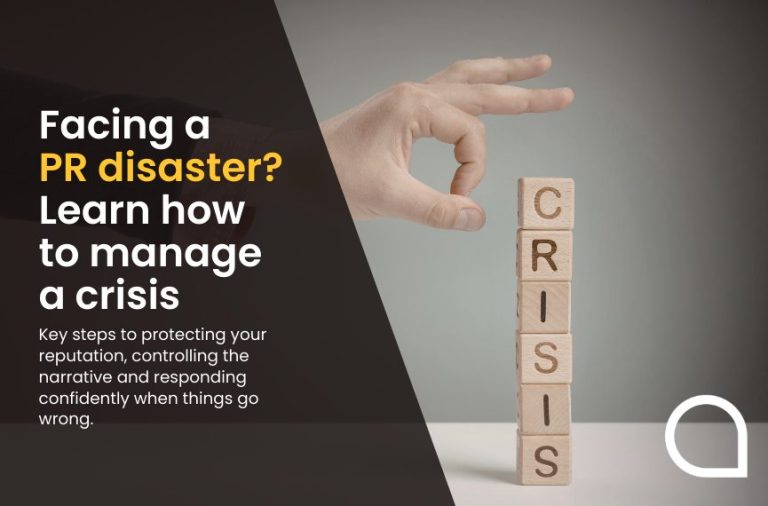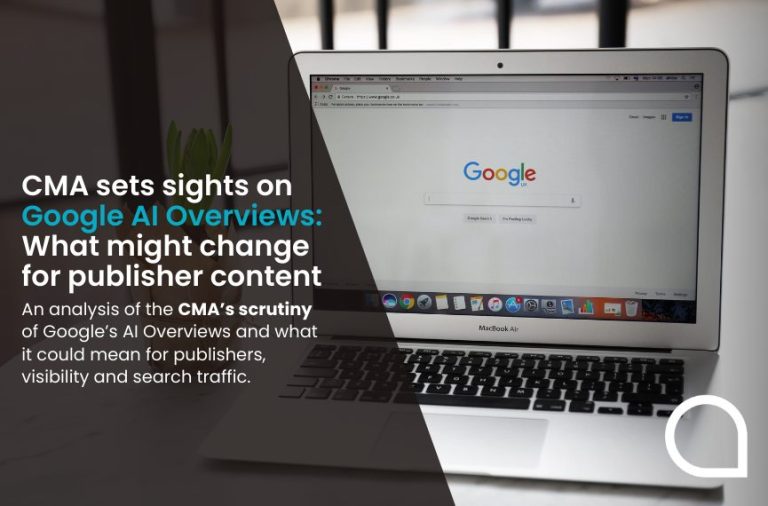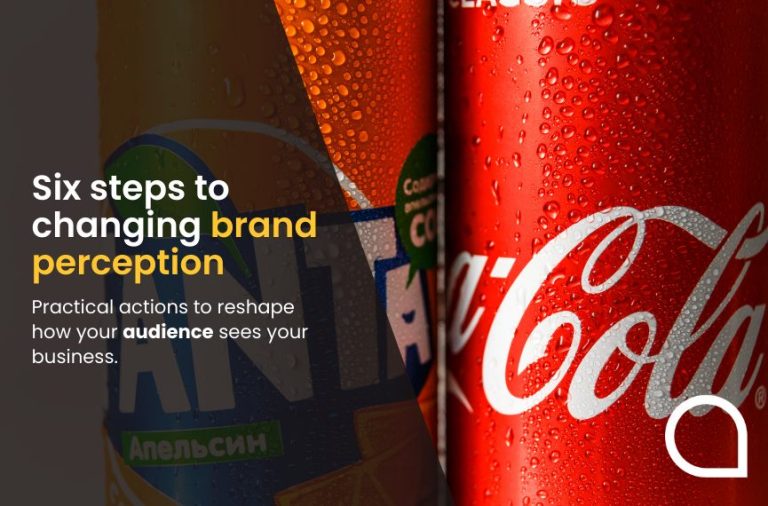Contents
From SEO to PPC, the wonderful world of digital marketing is full of acronyms, but where does E-E-A-T fit into all this? A type of criteria used to help the Google assess the quality of online content, understanding this framework can give your search engine optimisation efforts a much-needed boost.
Within this comprehensive guide to Google E-E-A-T, the digital marketing experts at Aqueous Digital explain the role this criteria can play in where content appears online, how you can improve your own E-E-A-T endeavours, and which common mistakes you should try to avoid.
As specialists in SEO, our team pays close attention to all the latest updates Google makes to both its formal and informal ranking algorithms. Backed by this invaluable expertise and experience, we can support the online success of your business to the best of our ability.
What is E-E-A-T?
Let’s start by answering the most fundamental question – what is E-E-A-T?
The Google E-E-A-T framework stands for the four key areas of Experience, Expertise, Authoritativeness, and Trustworthiness. This core criteria is used by the search engine to evaluate the quality and usefulness of website content.
It’s important to bear in mind that while E-E-A-T is not a direct ranking factor (like user experience (UX), backlinks, and page speed), it can still have an indirect impact on the ranking position of the page by indicating the quality of content.
By way of illustrating, once Google’s automated systems have successfully identified relevant content by assessing the user intent behind the search query and other key content factors, E-E-A-T comes into play to help prioritise the pages that seem to be the most helpful.
It’s worth noting that Google’s systems give greater weight to content that’s associated with strong E-E-A-T for topics, such as health and finances, as well as the safety of people and the wellbeing of society. The search engine refers to these topics as “Your Money or Your Life” (YMYL) topics.
This is because low quality YMYL content could have a significant negative impact the on the health, financial stability, or safety of people, or the welfare or wellbeing of society.
When was E-E-A-T introduced?
E-E-A-T isn’t a new concept. It was actually initially introduced in 2014 as just E-A-T, but was later updated in 2022 to include ‘Experience’ to ensure better content assessment.
However, for content to be deemed high-quality and helpful by Google, it doesn’t necessarily have to demonstrate all aspects of the criteria. To be prioritised by the search engine, the content only needs to be useful in the relevant area – we explain this in more detail below!
Examples of E-E-A-T
Unsure how to best incorporate E-E-A-T in your own website content? To help illustrate what Google might be looking for when assessing the quality of online content, we dig a little deeper into what’s considered Experience, Expertise, Authoritativeness, and Trustworthiness.
Experience
Does the content creator possess the relevant experience?
When Google introduced ‘Experience’ into the criteria in 2022, it explained that content should be produced with some degree of relevant experience to be considered useful and valuable.
For example, if an online user is searching for ‘the best vacuum cleaners’, it may be preferable for the producer of the content to possess some first-hand experience of actually using various vacuum cleaner products to provide a more accurate and detailed comparison.
Similarly, if an individual is looking for legal advice specifically regarding family law, then it’s likely they’ll want guidance from an expert in this legal field. Being able to demonstrate that you possess the relevant kind of experience for the type of content you’re creating is therefore instrumental in highlighting its usefulness to Google.
Expertise
Does the content creator have the necessary accreditations, knowledge, and skills?
For individuals looking for advice online, particularly regarding YMYL topics, expertise plays a substantial role in Google’s helpful content guidelines. An example of this would be an individual with a health concern searching for treatment, professional support, or medical diagnosis.
While experience from someone with a similar ailment may be useful, it can also be confusing due to the complexity of the topic. In this case, expertise from a qualified physician could be considered more accurate and helpful.
Authoritativeness
Is the content creator considered a reliable source of information in the industry?
With so much information readily available online, it can be hard knowing who to trust. With Google’s E-E-A-T prioritising more authoritative sources, online users can more easily access reliable information from reputable sites that are well-regarded.
Incorporating authoritativeness into your site can include a variety of activities. From securing high-quality backlinks to being mentioned in industry publications and citing reputable sources, all these efforts can be a clear signal of trust and authority.
Trustworthiness
Is the content honest, credible, and accurate?
Within its guidelines, Google emphasises that trust is the most important aspect of the criteria. This is because expertise, experience, and authoritativeness all indicate a degree of trustworthiness.
An example of creating trustworthy content includes using reputable sources, being transparent about your services, partnerships, and contact information, and regularly updating content. Ultimately, Google wants to protect its users from harm whilst providing them with the most helpful results.
How important is E-E-A-T for SEO?
As mentioned previously, E-E-A-T is not a direct ranking factor for Google in the same way as page speed and backlinks. However, it still plays an important role in SEO, particularly when it comes to YMYL content.
As Google E-E-A-T significantly influences how Google assesses and ranks content, failing to create high-quality content that meets this criteria can result in a lack of user trust, lower search engine rankings, and, in some cases where content is poor, misleading, or harmful, penalties.
How to assess your E-E-A-T
If you’re eager to find out how closely your website aligns with existing E-E-A-T guidelines, there are several methods you can use. This includes:
Checklist method
As simple as it sounds, the checklist method involves ticking off tasks on a predetermined checklist. There are several Google E-E-A-T checklists that can be easily accessed online for this purpose.
Qualitative research
Conducting qualitative research to assess your E-E-A-T can be as straightforward as speaking to your target audience or encouraging existing customers, suppliers, and partners to fill in a survey.
Professional SEO support
If you’d rather leave SEO to the specialists, then speak to an experienced team like Aqueous Digital. Our team has been focused on helping our clients build a trustworthy reputation online, so we know exactly where to start when it comes to assessing your Google E-E-A-T.
How to improve your E-E-A-T
One of the best places to start if you want to improve your chances of ranking higher in the SERPs (Search Engine Result Pages) through E-E-A-T is by acquainting yourself with Google’s search quality rater guidelines.
These guidelines have been specially developed as a criteria for Google’s 16,000 external search quality raters (real people that assess the search results generated by Google’s algorithms) to help them work out whether content has strong E-E-A-T.
Their insights are then fed back to Google, giving the search engine a clearer understanding of whether or not their algorithms are delivering the desired results. If they’re not, these insights can be instrumental in the search engine’s rigorous evaluation processes, helping them to enhance the algorithm and provide more accurate results.
Search quality raters also carry out Needs Met Rating tasks which involve determining how useful the search results are based on the intent of the query as well as the location of the online user.
Essentially, this emphasises how important it is to create clear, concise, and relevant content that fully satisfies or “fully meets” the needs of user.
E-E-A-T mistakes to avoid
Noticed a drop in your search engine rankings despite your best efforts to appease E-E-A-T? Some of the most common mistakes that can occur when trying to create content that abides by Google E-E-A-T guidance includes:
- Failing to regularly update content
- Not citing credible sources
- Creating misleading or unreliable content
- Not making content authorship transparent
- Ignoring the user experience
Where to start with E-E-A-T
According to Google’s own E-E-A-T and quality rater guidelines, you don’t have to demonstrate Expertise, Experience, Authoritativeness, and Trustworthiness all at once. Instead, the best place to start is with simply building trust. We recommend:
Adopting an ethical approach to SEO
Stop searching for shady, quick fixes. Some SEO agencies might promise instant results, but their methods are often short-sighted and ineffective. Instead, adopting an honest, ethical, and transparent approach to SEO is one of the easiest ways to avoid penalties and retain rankings.
Staying consistent and active
Regularly producing new content or updating existing content is a great way to prevent misleading information from accidentally slipping through the net and demonstrate that your website is active.
Creating people-first content
While this final piece of advice may seem counterintuitive for SEO, it’s important to create content that’s people-first rather than search engine-first by focusing on the intent of the search query and providing a clear and relevant answer to the question.
Contact Aqueous Digital for further guidance
Now you have a basic understanding of the Google E-E-A-T framework, why not consider talking to the professionals for more detailed, tailored advice?
As SEO specialists, you can trust the award-winning team at Aqueous Digital to stay up to date with all the latest changes to Google’s ranking algorithms, helping you to retain your hard-earned online visibility.
On top of supporting you with appearing in all the right places for those business-critical keywords, we can also provide expert management for PPC (Pay-Per-Click) advertising services, and guidance on other areas of digital marketing, including website design and video content.
Regardless of whether you’d like to see an increase in organic traffic, brand awareness, or enquiries, our team of SEO professionals will work with you to identify that metrics that matter the most to you and deliver a strategy that delivers tangible results.
Eager to explore how this avenue of digital marketing can boost your business? Get in touch with our team of SEO specialists today! Alongside using our online contact form, you can also reach out to us via:





